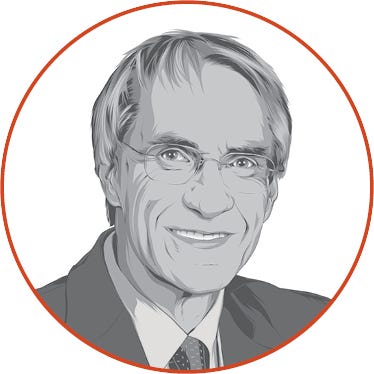.jpg?width=850&auto=webp&quality=95&format=jpg&disable=upscale)
It does not seem possible that I finished my 33rd year speaking at Texas A&M University’s Executive Program for Agricultural Producers (TEPAP). The late Dr. Danny Klinefelter led the vision of this program. Through his leadership, the program has grown to be the crown jewel of learning for agriculture producers and industry stakeholders who have lifelong learning as an objective.
Participant profiles
How has this group of lifelong learners changed over the years? First, there has been a youth movement. In the first few years of the school, participants were in the 50- to 70-year-old age range. When combining unit one and two, 80 percent of this year's participants were less than 45 years old. This is a trend that I am observing nationwide as the younger generation of agriculturalists have a deliberate educational strategy. This includes sessions that are information and strategy intense, but also networking and interchange of ideas and philosophies.
Another trend at TEPAP is that many businesses are sending the second and third generations to expose them to the financial aspects of the business to shape their ownership and management skills. A significant trend is more women participating as owners, managers, and major decision-makers. The shared learning regardless of size, business, or enterprise was inspirational. A larger turnout from Canada at this year’s event boosted the energy, but also provided a different perspective on challenges, operations, strategy, and business actions north of the border.
Perspectives and quick hitters
In their profile write ups, the participants indicated that a number of the businesses represented were in transition. Many of these business transitions were to other family members, but some were to non-family members. An examination of these writeups found that the transition often was a two- to three-year process with the assistance of an outside facilitator.
Many of the businesses represented had value-added spinoff businesses that were commodity enterprises. Others operated outside “gig” businesses such as sales, trucking, or consulting. This was not only for an income source, but a valuable part of networking and exposure to new ideas.
In the early years of the program, the focus was on revenues from government programs. In recent years, the attendees are very entrepreneurial and focused on data, technology, innovation, and management to drive sustainable and profitable business models.
A frustration amongst the producers of both units was financing their growth. They indicated that their lenders were too focused on collateral and credit scoring. Considerable conversation focused on how management and management potential could be emphasized in these risk models.
If you have the opportunity to invest time and money in an educational venue, this program could be very beneficial!
The opinions of David Kohl are not necessarily those of Farm Progress.
About the Author(s)
You May Also Like






